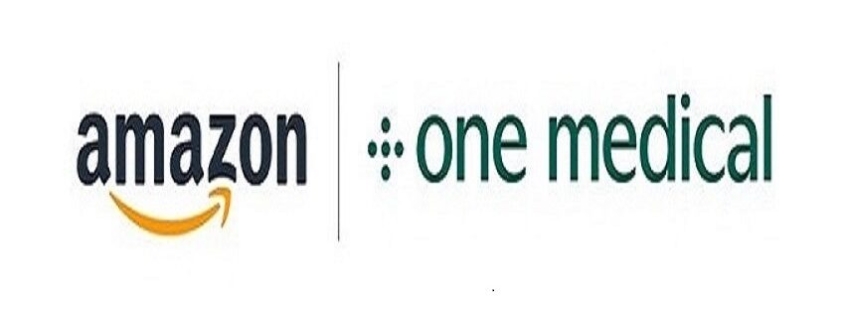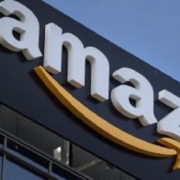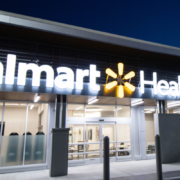What Amazon’s $4B One Medical Play Reveals About Its Healthcare Ambitions
With Amazon’s proposed deal to buy One Medical, the company is placing another massive bet on its healthcare strategy—to the tune of nearly $4 billion.
Amazon has been rapidly expanding its reach in the healthcare space, most notably in 2018 with its acquisition of online pharmacy PillPack.
“Amazon is obviously making decisions based around assets in the market at the right price,” Brad Haller, a senior partner in West Monroe’s mergers and acquisitions practice, said in an interview. “Frankly, the One Medical acquisition is one of the more foundational ones for them because this is where you are touching the patient. This is likely going to be the largest driver for them to be able to execute the rest of their strategy,”
The online retail giant announced plans last week to buy One Medical for $18 per share in an all-cash transaction valued at approximately $3.9 billion including the company’s net debt, according to a press release.
The company made waves a year ago when it announced plans to expand its virtual health service benefit, called Amazon Care, to all its U.S. employees while also making it available to other companies as an employee benefit. It marked Amazon’s first foray into direct patient care on a national scale. If the One Medical deal goes through, it would significantly expand Amazon’s foothold in the nearly $4 trillion healthcare market, specifically in the competitive primary care market.
One Medical markets itself as a membership-based, tech-integrated, consumer-focused primary care platform. The company operates 188 offices in 29 markets. At the end of March, One Medical had 767,000 members. The deal also gives Amazon rapid access to the lucrative employer market as One Medical works with 8,000 companies.
“I think Amazon was having some difficulty in penetrating the employer market with Amazon Care. With One Medical, it’s a huge shortcut to accelerated growth,” Michael Abrams, managing partner at Numerof and Associates, said in an interview with Fierce Healthcare. “They are planning to make a business in primary care so this is just a real reinforcement of their commitment to the primary care space. It also opens up the opportunity for Amazon to grow its online pharmacy and diagnostics businesses.”
Many experts expect the company to fold One Medical’s clinics and virtual care capabilities into Amazon Care and then build a tight integration between the care delivery side and the pharmacy side. One Medical is not yet profitable and operates a low-margin business but Amazon has deep pockets to invest in capabilities to grow its healthcare presence, industry experts say.
“The customer acquisition cost is really high for One Medical. The Amazon thesis is that they can drastically lower that customer acquisition cost with that captive market the company has,” Haller said.
As Amazon has built its business with a laser focus on the consumer, the company’s bigger push into healthcare raises the stakes for other players to take a consumer-centric approach, industry experts say.
“This really resets consumer expectations about what the healthcare experience should be like. I think that’s going to force traditional providers to up their game and I’m looking forward to that,” Abrams said.
The online retail giant also brings to the table its massive analytics capabilities and consumer behavior data.
“Amazon knows how to get customers, keep them and get them whatever it is they want. So imagine kind of applying that skillset and the analytics capabilities that they have to the primary care experience,” noted Sari Kaganoff, general manager of consulting at digital health-focused venture capital firm Rock Health.
Businesses like Amazon with a national customer base have a unique opportunity to expand their share of wallet with loyal customers, Trilliant Health’s Sanjula Jain, Ph.D. noted in a blog post.
“Notably, approximately 44% of Americans have an active Amazon Prime membership, while the largest U.S. health system, HCA Healthcare, serves just 1% of Americans,” Jain wrote.
Traditional healthcare delivery companies will need to adapt or become obsolete, noted Colin Banas, M.D., chief medical officer at DrFirst, as non-traditional models that seamlessly combine in-person with remote care increasingly compete with brick-and-mortar-based practices.
“While the healthcare industry has been watching to see if large chain drug stores will gain a substantial share of primary care practice because of convenience and ease of parking, Amazon leapfrogged over this issue with the vision of what patients really want – seamless mobile care, when it’s appropriate,” Banas said.
Millennials and Generation Z patients have less loyalty to traditional providers and are looking for convenience and price transparency.
“Amazon has an edge; they’ve got the right demographic who are used to interacting with Amazon in a seamless way and they can extend that in how they are providing care, at least for relatively routine wellness services,” Haller said.
Amazon’s tech muscle also gives it an advantage as it uses an M&A strategy to make inroads into healthcare, noted Samantha Prokop, an attorney at Gunster law firm who specializes in advising healthcare companies that are executing M&A deals.
“One of the biggest challenges with consolidation is getting a good technology platform to roll it out and provide consumer-friendly access,” Prokop said. “I think the deal with One Medical could be huge because if they can solve the technology issue, they can be leaps and bounds ahead. Amazon can offer consumer-facing, really convenient healthcare that people like because it’s easy and it’s accessible and I think it’s going to change the way we do healthcare.”
With Amazon’s growing list of healthcare assets—Amazon Pharmacy, medication adherence, Amazon Care, its fitness band Amazon Halo and Alexa-powered devices with health-related skills—there is the potential for the company to pivot to chronic disease management, Kaganoff said.
“I think moving up the value chain to have more of a longitudinal layer of care could be interesting,” Kaganoff said.
What remains to be seen, and will likely be closely watched, is whether Amazon, Microsoft, Google and Apple moving into healthcare actually result in better access to care for patients and better quality of medical services.
“Amazon can make the argument that what they’re trying to do is promote further access to health care,” Jason Nardella, senior vice president of product strategy at Trilliant Health, said in an interview. “But when are we going to start talking about quality, efficiency and costs around healthcare as well or it’s just purely a utilization play to have more access and more access sort of spurs more demand,” “Are we going to see more spending, which is just gobbling up more and more GDP?”
Amazon also has the ability to leverage its expertise at “shoppability” and translate that to healthcare to help make the industry more price transparent, experts say.
“That’s an area where Amazon does excel. If they are able to do that and make it more like a true Amazon-like experience with an empowered shopper, so to speak, that would be a huge win for the patient and a major disruptor,” Haller said.
However, top antitrust advocates are sounding the alarm that the acquisition poses a threat to competition and have voiced concerns about how horizontal megamergers could impact patient data privacy.
Sen. Amy Klobuchar, D-Minn., urged the Federal Trade Commission to “thoroughly investigate” the deal in a letter sent Thursday. Klobuchar cited what she called Amazon’s “history of engaging in business practices that raise serious anticompetitive concerns,” including favoring their own services.
“I also ask that the FTC consider the role of data, including as a potential barrier to entry, given that this proposed deal could result in the accumulation of highly sensitive personal health data in the hands of an already data-intensive company,” Klobuchar wrote.
Ripple Effects For The Industry
By scooping up One Medical, Amazon also can gain a foothold in the Medicare Advantage market thanks to the company’s acquisition of Iora Health a year ago.
One Medical bought Iora Health, another primary care competitor focused on Medicare patients, in a $2.1 billion deal. One Medical has largely focused on care for the commercially insured, so a union with Iora Health broadened its reach into the Medicare space. When the deal was announced, One Medical executive said it would expand its potential market opportunity to $870 billion. One Medical’s MA business may have been a key factor in the deal.
“After One Medical’s acquisition of Iora, One Medical now serves commercial and Medicare lives, so they can provide care to patients across the age and care continuum, which is very attractive for Amazon in our view,” BTIG analysts David Larsen and Aron Corin in a research note. “We like how One Medical is highly aligned with Amazon’s mission and its national healthcare vision, and we like how One Medical can be synergistic for Amazon’s existing healthcare portfolio.”
Amazon is gaining One Medical’s recognizable, solid brand name in healthcare and the ability to take on massive risk through its Medicare Advantage business, industry experts say.
The One Medical deal represents Amazon’s shift into playing the role of a pharmacy benefit manager, according to Nardella.
“You have the negotiation power on the manufacturers and drug supplier side and now you have the provider side with primary care providers to write the scripts and fulfill them through Amazon Pharmacy,” Nardella said. “It’s an opportunity to control the pharmacies and then also control those providers who are the only ones who can write scripts.”
Amazon’s latest move will heat up market competition among primary care players, virtual care companies as well as other healthcare retailers like CVS, Walgreens and Walmart.
“If I were a telehealth provider business, I’d be very worried. If you can access telehealth from the same place where you’re getting your groceries, that is the easiest and the most convenient option for you,” Nardella said. “So if you’re one of these other telehealth providers, you’re really going to have to fight to make your system as easy or as convenient to use as Amazon, that’s going to be a really tough hill to sled.”
For health systems and medical groups, Amazon’s expansion in primary care means it controls more of the healthcare access points and referrals points, he said. The company also can leverage its massive trove of consumer data to understand consumer behavior outside the four walls of a doctor’s office.
Providers who have moved slowly into building the digital side of their business will need to accelerate those efforts, industry experts say. These primary care moves also ramp up competition with other retail healthcare companies like CVS with its MinuteClinics, Walgreens and Walmart, which also is opening up medical clinics.
Experts also expect to see M&A activity heat up as companies look to build up their capabilities in the primary care space.
“Companies that are more affordable to buy now than there were previously will look more attractive. The competition will get more fierce as it takes time to build up capabilities and easier and faster to acquire those,” Rock Health’s Kaganoff said.
Prokop, the M&A attorney, expects healthcare payers to get more aggressive in the primary care market, which is an ongoing trend. UnitedHealth Group, the parent company of UnitedHealthcare and Optum, has placed its bet on owning medical providers and has assembled a large collection of physicians, about 53,000 or about 5% of U.S. physicians, according to some reports.
What remains to be seen is where Amazon goes from here as far as its healthcare strategy.
“I’m curious if they’re going to somehow try to do something with the medical records that they’re now going to have access to or even clinical trial recruitment based on the populations they have access to,” Kaganoff said.
Business Insider recently reported that Amazon is quietly developing cancer vaccines in partnership with Fred Hutchinson and recruiting patients for a new clinical trial. This opens the door for the company to go after a genetic testing company like 23andMe to help fill that gap, experts note.
Source: Fierce Healthcare










